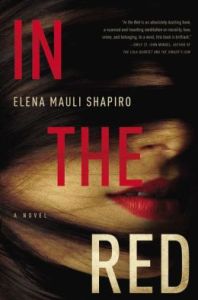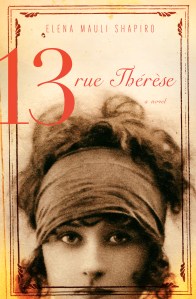A new friend asked me over e-mail today, “What kind of novels do you write? Mystery? Romance? Sci-fi? All of the above?”
This is a question that makes me itchy all over. The last book I wrote was set in Paris, 1928, so I guess that makes it historical fiction. It’s got some lovin’ in it, so I guess it’s a romance. With erotica thrown in. But it’s also a war story with graphic battle scenes. And there’s stuff about academia and translation and memory, and fuck, I don’t know. It’s just a story, you know? The book I just turned in to my editor has a lot of stuff about being foreign so I guess it’s an immigration narrative. With crime. And myth and folklore. And a fair amount of sex. And goddamn it, I hate this question.
The answer I gave my new friend was: “‘Literary fiction’ is what I’m categorized under. Really, who knows what the fuck that means. It means it takes forever for me to shit out one book but it has, like, substance.”
That’s the best explanation I could come up with, because “literary fiction” doesn’t mean anything. It just means fiction. But it’s a marketing category that’s meant to say, “this isn’t some Harlequin Romance or some space opera, this is a story for smart people. It’s written all pretty and has philosophical aspirations, unlike genre fiction.” It’s a marketing category that pitches itself to its readers by trying to pretend it is not a marketing category. It’s also the only answer I can give without launching into a long explanation of all the shit all my books are about.
One dude, after I told him I wrote literary fiction, said, “oh, so you write real books!” I almost peed a little. Clearly, my writing real books made me worth talking to. This kind of snobbism is exhausting. This kind of snobbism is a huge, major drawback to MFA programs. The expectation was clearly that we were there to write “literary fiction.” Never mind the fact that most of us couldn’t put a narrative arc together to save our lives, learning how to write something interesting to your average plebe was beneath us. This was especially stark when the poor unfortunates who were trying to write science fiction submitted their stuff in workshops.
When I was given a sci fi piece to review, I usually wrote a little disclosure at the top that stated that I don’t really read sci fi, so some of my feedback may be off-base. I meant that since I wasn’t well-versed in sci fi, I might ask stupid questions or raise concerns that should be discarded, because I was not familiar with the conventions of the genre. One time, the teacher, a writer published in The New Yorker, the ultimate magazine for smart people, opened the workshop on a sci fi piece by saying he didn’t really read sci fi, so he didn’t know how to comment on the piece. What he clearly meant was, this material is beneath me, why are you making me read this?
After that, I stopped putting in disclosures about my unfamiliarity with certain genres into my reviews because I realized that doing so made me sound like an asshole. It doesn’t matter what marketing category a manuscript should be filed under. The only question should be, is it a good story? Is it–God forbid–fun to read?
I know! FUN?!?! Crazy. Bring up the idea that a story is supposed to be fun in an MFA program and watch the practitioners of the writing craft present turn into writhing sacks full of angry badgers. Fun is for children and the simple-minded.
The same writer who quite emphatically did not read sci fi, when confronted with a very early, very larval draft of In the Red, told me that I should take the crime part out. I should just turn the whole thing into an immigration story, because that was a proper thing to write about. Writing about guns and organized crime looked entirely too much like fun, it did not belong in a real book.
It must be I am a child. It must be I am simple-minded. I like it when stories are fun.





